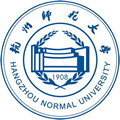Study in Hangzhou Normal University About Hangzhou Normal University & Study in hznu
About Hangzhou Normal University
Hangzhou Normal University is an institution of higher education whose history can be traced back to the Zhejiang Dual-Level Normal School founded in 1908. It started to adopt the present name in 2007 when it had merged with Hangzhou College of Education and Hangzhou Senior School of Medicine since 2000.
As a comprehensive institution, the university currently has a broad spectrum of disciplines in 11 major branches of learning, namely literature, history, philosophy, economics, management, law, education, science, engineering, medicine and arts. The university boasts strong programs in Organic Chemistry, Condensed Matter Physics, Music, Primary Education, Curriculum and Teaching Theories, Contemporary and Modern Chinese Literature, Modern and Contemporary Chinese History, Zoology and Health Care Management, and nationally distinctive programs of Chemistry, Biological Science, Music, Primary Education, and Computer Science and Technology. The university is making efforts to develop programs with English as the medium of instruction in Health Care Management, E-commerce and Nursing, which are to be offered to international students in near future.
Located in Hangzhou, a world-famous tourist resort with rich cultural heritage, the university currently consists of 4 campuses, occupying a total area approximating to 900 hectares with a floor space of some 640,000 sq. m. Another 2 campuses that occupy 220 and 37 hectares respectively in land area are under rapid construction and will be put into use from the fall of 2012 onwards.
The university has 2 faculties and 19 schools that offer one doctoral program, over 80 Master’s degree programs and over 60 undergraduate programs to a total of 22698 full-time students, of whom 21137 are undergraduate students and 1561 Master’s Degree candidates.
The university attaches equal importance to teaching and research. It has more than 80 research institutes at different levels and in different fields, which have been undertaking a great many of key research projects, including major and important ones with grants from China’s National Science Foundation and National Funds of Social Sciences.
The university has been establishing and developing academic ties with over 50 institutions from different countries. In 2011, it enrolled 523 international students, of whom 49 were degree-seeking students.

